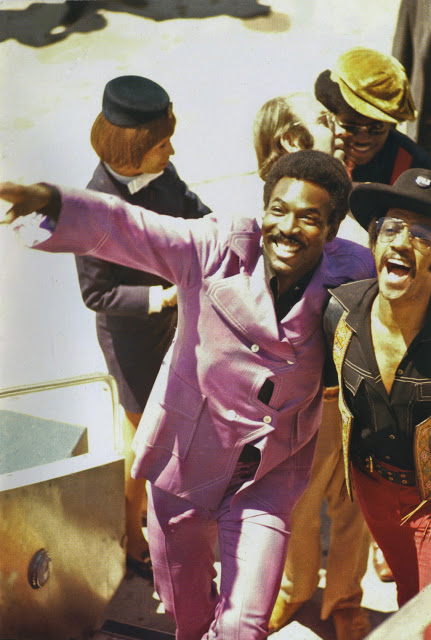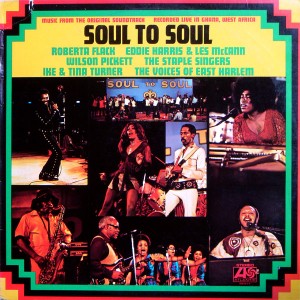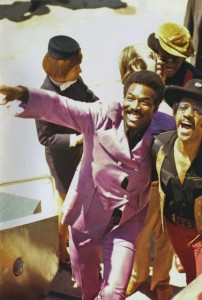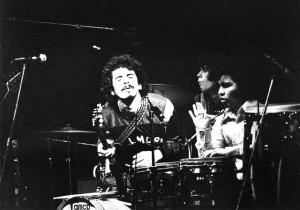
Good Morning POU!
Ike and Tina, Wilson Pickett, The Staple Singers and more, Ghana 1971.
Soul To Soul was a concert held in Accra, Ghana, on March 6 1971, by an array of mostly American R&B, Soul, Rock and Jazz musicians. It is also the name of a 1971 documentary film recording the concert.
Ghana, after declaring its Independence March 6, 1957, had made a variety of efforts to connect with African diasporans, some of whom — including Maya Angelou, W.E.B. Du Bois and George Padmore — lived in the West African nation for a time. In the mid-1960s, Angelou approached the government of and suggested bringing a number of African-American artists to Ghana for the annual independence celebrations. The ruler at the time, Nkrumah was deposed before action could be taken, but when the American father-son team of Ed Mosk and Tom Mosk approached the Ghana Arts Council in 1970 with an idea for a concert, the Council agreed.
Of the musicians invited to perform, Wilson Pickett was by far the biggest star in Ghana, where he was known as “Soul Brother No. 2.” (James Brown was, of course, Soul Brother No. 1.)
The show was held in Black Star Square (now Independence Square) on the Gulf of Guinea and ran for 14 hours, finishing at 6:45 a.m. with a gospel set by The Voices of East Harlem.
Several at the show remarked that Santana, despite having only one black member, played the most “African-sounding” music of the night. Some have argued that the band’s merger of Latin rhythms with rock music strongly influenced the development of Afrobeat.
The American artists represented a variety of musical styles:
- Wilson Pickett
- Ike & Tina Turner
- Les McCann and Eddie Harris
- The Staple Singers
- Santana, featuring Willie Bobo on timbale
- Roberta Flack
- The Voices of East Harlem
The concert also featured performances by several Ghanaian acts:
- Guy Warren, a.k.a. “The Divine Drummer,” also known as Kofi Ghanaba, one of the first African musicians to play alongside American jazz musicians
- The Damas Choir, perhaps the nation’s most prominent vocal group since the 1940s, led by Ishmael Adams
- Charlotte Dada, sometimes spelled “Dadah” or “Daddah,” best known in the West for her soul cover of The Beatles‘ “Don’t Let Me Down”
- Kwa Mensah, a pioneer in highlife music and the older palmwine style
- The Kumasi Drummers, a group from the Ashanti Region
- The Aliens, Ghana’s best known rock band, sometimes known as The Psychedelic Aliens or The Magic Aliens
- The Anansekromian Zounds, the house band for the Ghana Arts Council
In addition, Les McCann and Eddie Harris played part of their set with a Ghanaian calabash player and medicine man named Amoah Azangeo.




